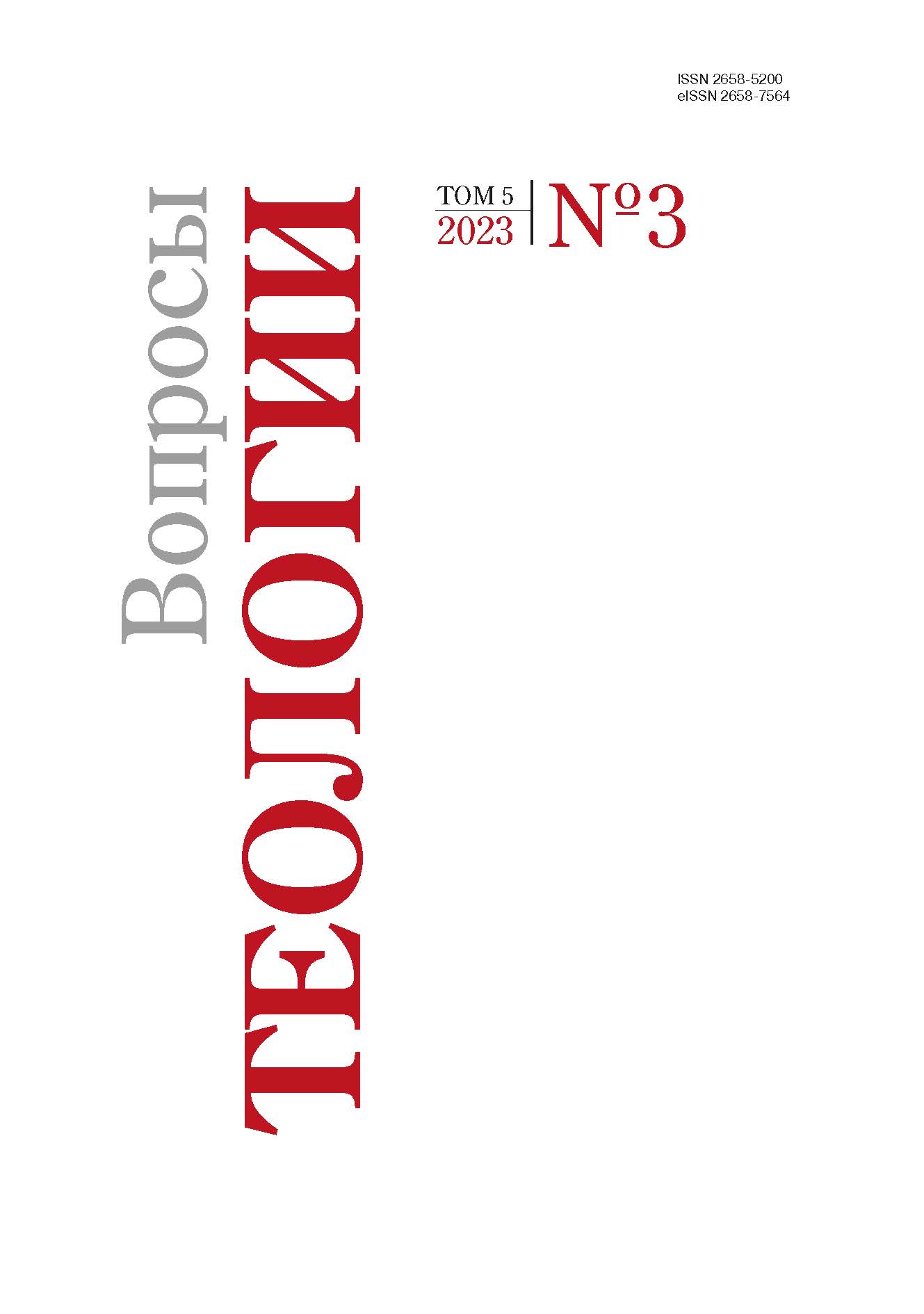Theology in a new paradigm
DOI:
https://doi.org/10.21638/spbu28.2023.309Abstract
Interview with Dmitry Shmonin, Director of the Institute of Theology of St. Petersburg University, professor of St. Petersburg Orthodox Theological Academy and ss. Cyril and Methodius Institute for Postgraduate and Doctoral Studies, Chairman of the Expert Council of the Higher Attestation Commission under the Ministry of Education and Science of Russia in Theology, editor-in-Chief of the journal “Issues of Theology”. D. V. Shmonin is devoted to the place and role of theology in the domestic academic and educational space. Topics covered include: theology and worldview; normativity of theology in modern society; confessionality of theology; the specificity of religious thinking in the three Abrahamic traditions, as well as in Buddhism; theology and religious tradition; criticism in theology as a science; the importance of ancient and medieval heritage; the specifics of the domestic experience of the presence of theology in the educational space. Questions were raised about the status of the so-called ecumenical theology and the Anglo-American “philosophy of religion” as a non-denominational apologetic theology. The relationship between the dogmatic core of theology and scientific and theological research “on the margins” of this unchanging core is discussed. The author proposes, in connection with theology, to talk about a new educational paradigm that does not repeat the ancient one, which is impossible in modern conditions, but draws valuable and relevant from it. The main task is to secure a reliable place for theology in the domestic context as an academic discipline (or a set of disciplines) within the framework of modern humanitarian knowledge, including that transmitted in the educational process. This talk is a contribution to the ongoing debate about theology as a science, both institutionally and substantively.
Keywords:
theology, science, worldview, normativity, Abrahamic religions, ecumenical theology, theological creativity, higher education, humanitarian knowledge
Downloads
References
References
Downloads
Published
Issue
Section
License
Articles of "Issues of Theology" are open access distributed under the terms of the License Agreement with Saint Petersburg State University, which permits to the authors unrestricted distribution and self-archiving free of charge.




